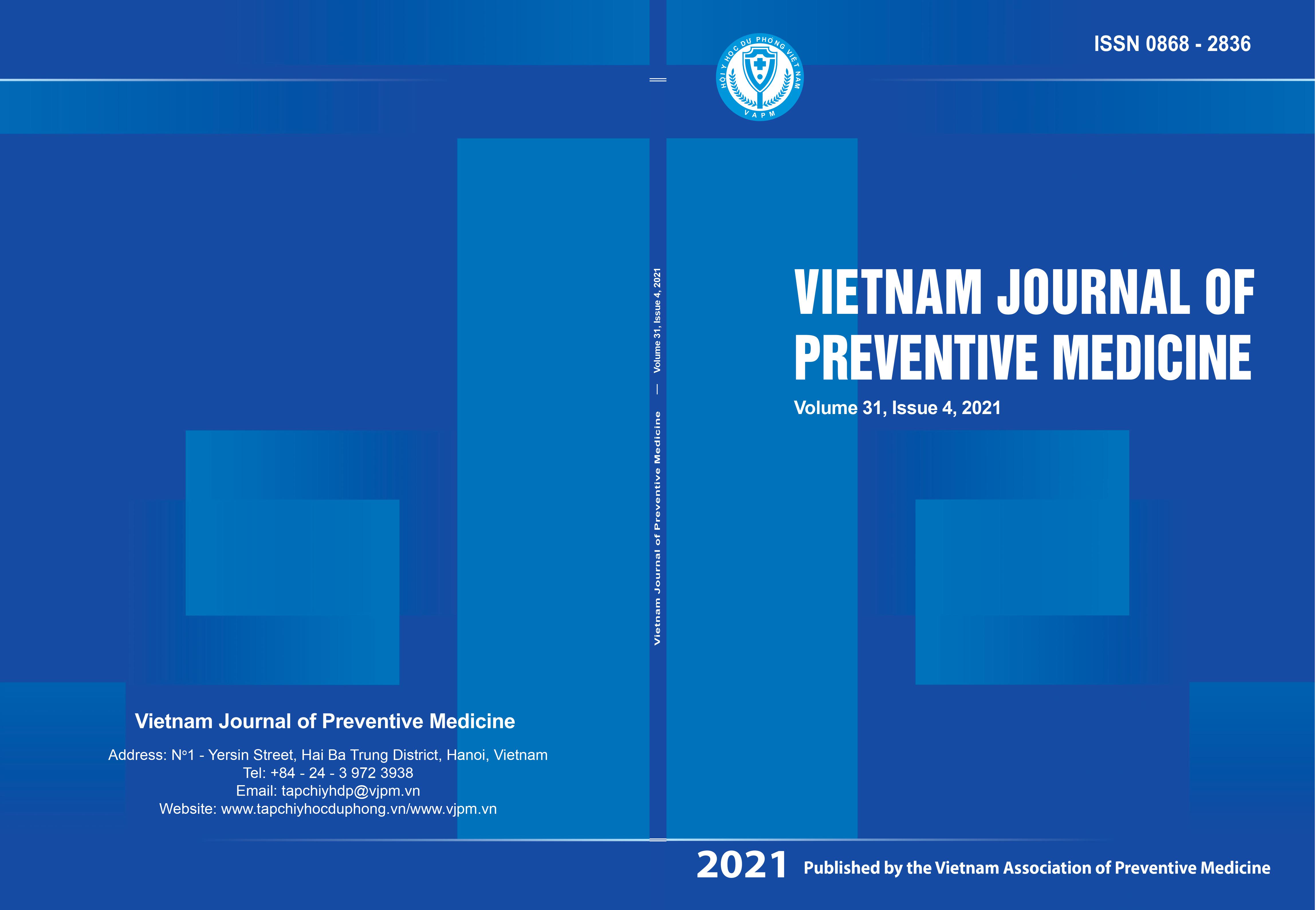Safety and immunogenicity of inactivated Japanese encephalitis vaccine derived from Vero cell. Phase III, double-blind, randomized, control trial (JECEVAX, VABIOTECH, Vietnam)
DOI:
https://doi.org/10.51403/0868-2836/2021/331Keywords:
Japanese encephalitis, vaccine, Vero cells, safety, immunogenicityAbstract
Japanese encephalitis (JE) is one of the most important infectious disease in Southeast Asia and the Pacifc region and more than 3 billion people are living in endemic areas. The annual incidence is estimated to be 60,000 cases/year of which 15,000 deaths, 50% of the people survive with neurological sequelae. Since 1997, Vietnam has produced and used mouse brain - derived (MB) inactivated Japanese encephalitis vaccine (JEVAX®) for children 1 - 5 years of age under the Expanded programme on immunization (EPI). In 2006, VABIOTECH started the research and development of vero cell-derived inactivated JE vaccine (JECEVAX). The clinical trial phases I, II & IIB were conducted successfully and the phase III was completed in January 2019. The study participants included 655 healthy infants aged 9 - 24 months were immunized with JECEVAX testing vaccine, and JEVAX® control vaccine. The results showed that both vaccines were safe with good tolerability in children. The seroconversion rates of JECEVAX (n = 547) were 99.6 - 100%, compared with JEVAX® (n =108) were 99 - 100%. The GMT titer of JECEVAX and JEVAX® after the second dose was 2.07log and 2.02log after the third dose, the neutralizing antibody (PRNT50) increased to 3.04log and 3.19log respectively. The registration dossier with the MOH of Vietnam is being fnalized before scaling up the production to prevent JE disease with JECEVAX high qualifed second generation vaccine.
Downloads
Downloads
Published
How to Cite
Issue
Section
License
Publication License No 150/GP-BTTTT signed on May 8, 2014;
Electronic Publication License No 322/GP-BTTTT signed on June 15, 2016.


